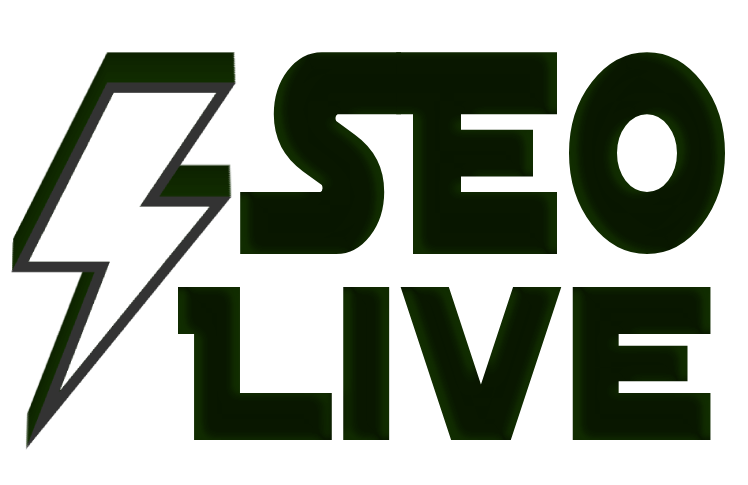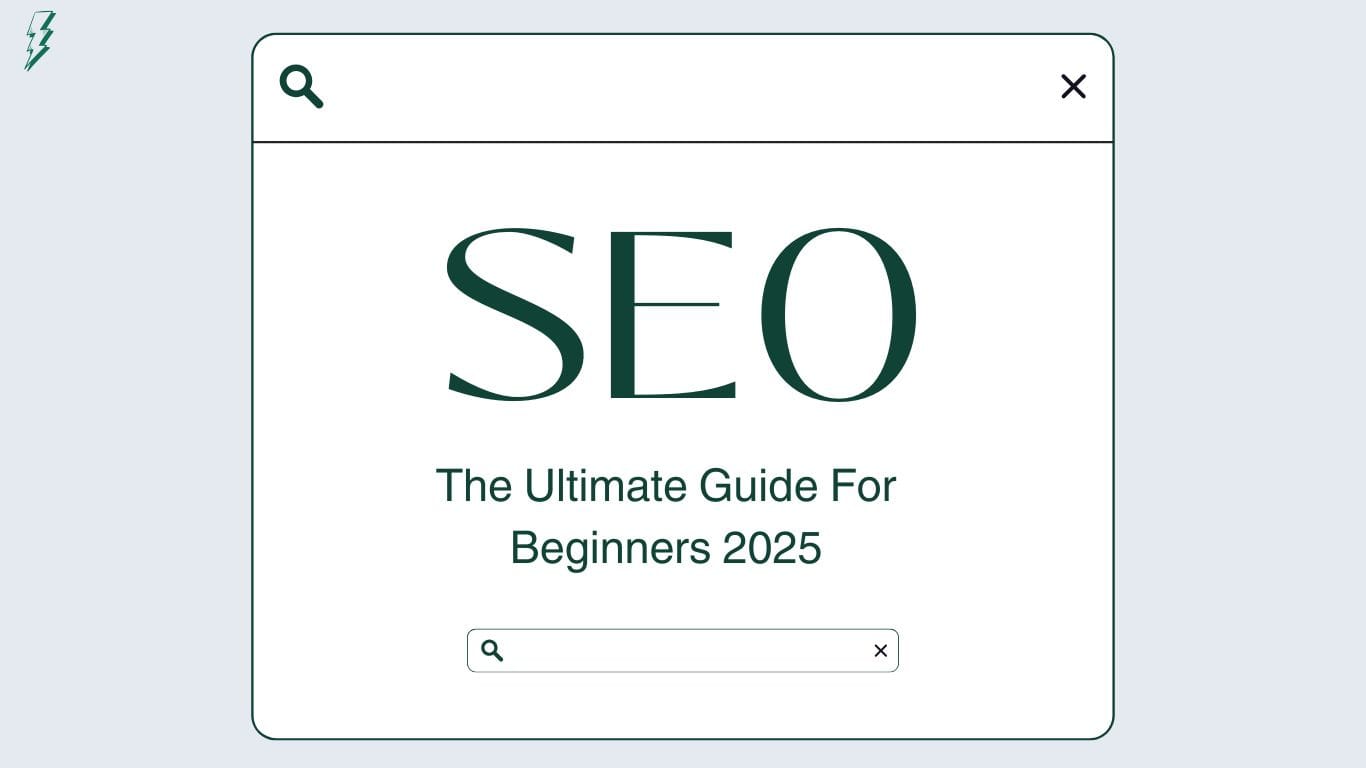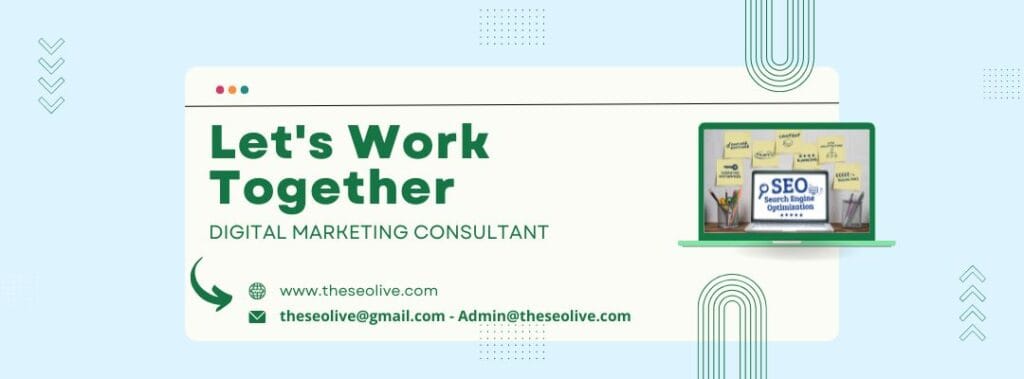What is SEO? Why Is SEO Important?
Search engine optimizatioln “SEO” is the most cruicial and impactful digital marketing strategy that helps your website appear at the top of search engine results pages (SERPs). The simple definition is, SEO is the process of optimizing your web page to rank higher in organic search results for relevant searh query.
There are 4.9 billion active internet users in the world and almost half of them use goolge search. So, if you want your business to appear when people search for product or service you are offering, SEO can help you with that. This digital marketing technique have all the strategies your website needs to rank on google search results.
One of the biggest misconceptions is that SEO is paid only but its not true. Atleast not if you do everything by yourself. There are two types of search results, Paid and organic.
Organic is what known to be is free and in this guide we’ll talk about this term, how it works, its benefits for online businesses and everything you need to know about organic SEO.
Organic SEO vs Paid SEO (PPC)
Organic SEO and Paid SEO which is generally known as Pay Per Click (PPC). Organic SEO builds a strong foundation for long-term organic growth, while PPC accelerates results and provides immediate visibility.
SEO is the process of optimizing your web page’s content to be discovered on search engine’s organic search results. It help businesses to enhance their website’s relevancy and authority in their specific niche. This long-term approach builds brand credibility and generates sustainable growth.
Pay Per Click (PPC) also called Paid SEO involves bidding on keywords to display ads on search engine results pages. You will pay a fee each time your ad is clicked. PPC allows for precise target audience, immediate visibility, and measurable results. Mostly e-commerce stores use Paid SEO to reach potential buyers in no time.
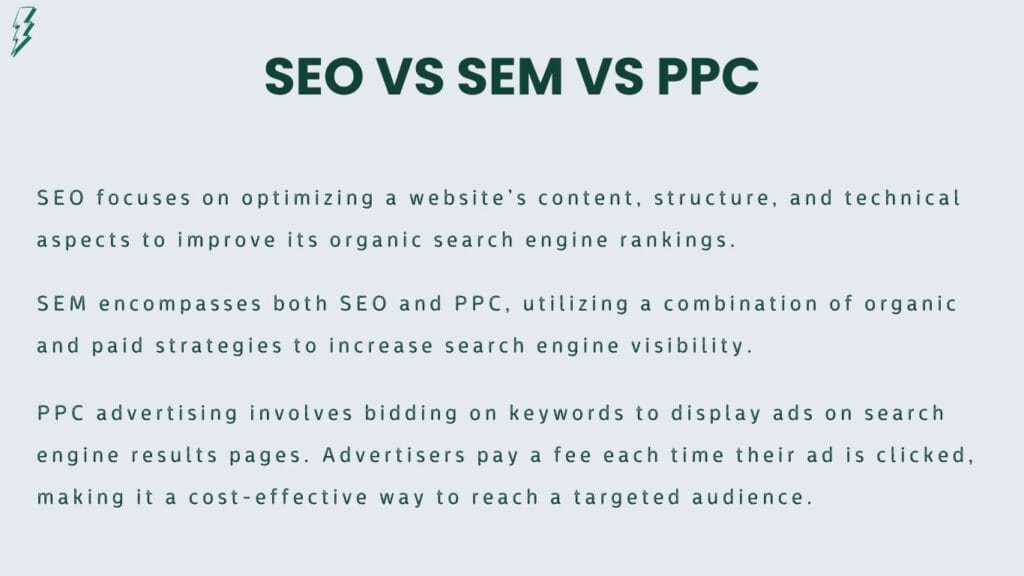
Why is SEO Important For Your Digital Marketing Strategy?
SEO is crucial for businesses of all sizes, from small startups to large corporations. There are 4 important benefits that implementation of SEO provide to your business are,
- Increased Organic Traffic: Higher search engine rankings lead to more organic traffic, driving more visitors to your website.
- Enhanced Brand Visibility: A well-optimized website can significantly improve your brand’s visibility and credibility.
- Improved User Experience: The best practices often align with user experience best practices, leading to higher user satisfaction and engagement.
- Cost-Effective Marketing: Organic search traffic is a cost-effective way to acquire new customers and generate leads.

Understanding How Search Engine Works?
Understanding How Search Engine Works?
Every Search engines have unique algorithms and technology to provide the accurate return of the given query. Nobody knows exactly how these algorithm works but we have clues, particularly for google. However, there are 3 basic elements of this process, Crawling, Indexing and ranking.
Crawling is the process by which search engine bots discover new web pages by following links. Indexing is the process of storing and organizing the discovered content in a searchable database. By understanding how search engines crawl and index your website, you can optimize it for better visibility.
Moreover, we’ve discussed the 9 proven ranking factors in our other blog about “How Google Ranks Websites?“. Follow these ranking signals to optimize your web pages accordingly.
3 Core Types of SEO
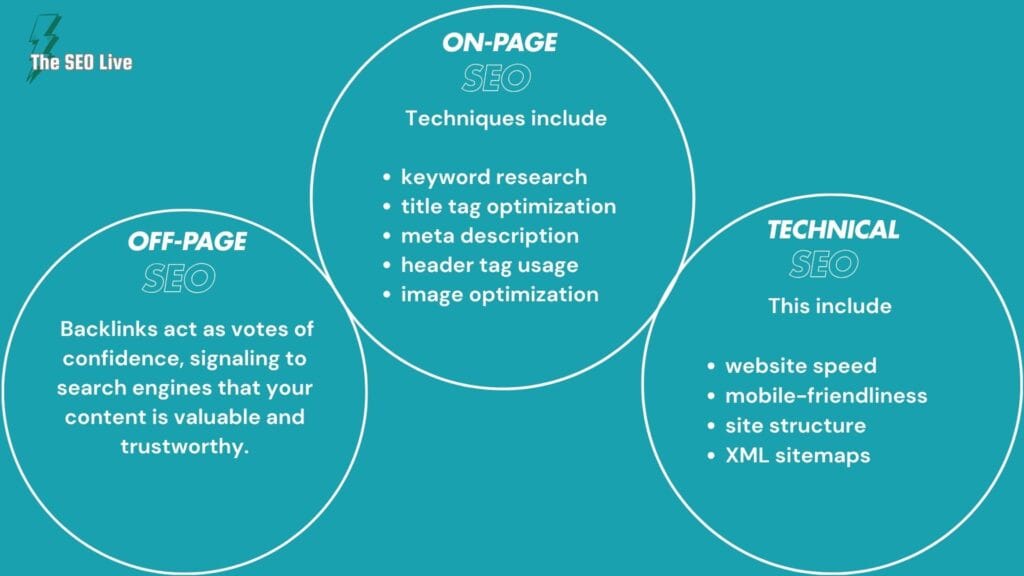
There are three foundational types of Search Engine Optimization. You can say that everything is built on them, they are the foundation pillers of every SEO strategy.
- On Page SEO
- Off Page SEO
- Technical SEO
1. On-Page
Traditionally, on-page SEO refers to the visibal elements of a webpage that you can analyze both as an SEO professional and as a regular visitor.
These include things like:
- Title Tags: The titles that appear on search engine results and at the top of your browser.
- Meta Descriptions: The short descriptions under the title in search results.
- Page Content: The actual text, images, and other content visible on the page.
- Keywords: Words or phrases that should be present in the content to match what users are searching for.
On-page optimization focuses on everything within the HTML code that both browsers and search engine bots can read.
A well-executed on-page optimization plan ensures:
- The content is detailed, useful, and easy for users to understand.
- The site structure is logical and easy to navigate.
- The right keywords are used naturally.
In short, on-page optimization is about making sure your webpage is optimized for both users and search engines, with everything working together seamlessly.
2. Off-Page
Off-page SEO refers to everything happening outside your website that affects its search engine rankings. Search engines, like Google, pay attention to what others are saying about your site.
This includes:
- Links: Other websites linking to yours.
- Mentions: Other sites or platforms mentioning your website or brand.
These signals show trust and relevance to search engines. For example, a site with thousands of links and mentions will likely rank higher than one with only a few.
To improve off-page SEO, focus on:
- Building backlinks: Create valuable content that naturally earns links.
- Digital PR: Develop strategies to get your brand talked about online.
- Engagement: Encourage conversations and mentions about your website across the web.
A strong off-page plan works together with other SEO elements (like on-page and technical SEO) to boost your rankings.
3. Technical SEO
Technical SEO focuses on the behind-the-scenes aspects of your website, ensuring it’s set up for optimal performance and visibility to search engines.
This involves working closely with developers to analyze the website’s code, server setup, and other technical elements.
Here’s what it covers:
- Page Speed: How quickly your website loads for users. Faster sites improve user experience and rank better in search engines.
- Crawlability and Indexability: Ensuring search engines can access and understand your site’s content so it can appear in search results.
- Server Optimization: Checking server settings and configurations to prevent issues that could slow down or block search engine access.
While these may seem like basic tasks, they become increasingly complex for large websites or e-commerce platforms.
Technical SEO simplifies these complexities, ensuring that:
- The website performs well across all devices.
- Search engines can effectively crawl and index your pages.
- On-page and off-page efforts work seamlessly together.
By addressing technical SEO, you build a strong foundation that maximizes the impact of your overall SEO strategy.
SEO vs SEM vs PPC
Beyond the Basics: Advanced SEO Strategies for 2025
The Search Engine Optimization landscape is constantly evolving. Here are some trending search strategies to keep an eye on for 2025.
Competitor Analysis
Competitor Analysis involves researching and evaluating your competitors’ strategies, strengths, weaknesses, opportunities, and threats.
It involves understanding their target audience, marketing tactics, product offerings, pricing, and customer service.
Target Audience Profiling
Target Audience Profiling is the process of understanding and defining your ideal customer. It involves creating detailed profiles of your target audience, including their demographics, behaviors, interests, and pain points.
Content Creation and Implementation
Content Creation is the process of generating new content. Such as blog posts, articles, videos, infographics, or social media posts.
This content is designed to attract and engage your target audience, ultimately driving traffic to your website and achieving your business goals.
Content Implementation is the process of publishing and promoting this content to reach a wider audience.
This involves optimizing the content for search engines, sharing it on social media, and using email marketing to distribute it to your subscribers.
Keyword Research
Identify relevant keywords that align with your target audience’s search intent. Utilize keyword research tools to discover high-volume, low-competition keywords. Incorporate long-tail keywords for more specific search queries.
On-Page Optimization
- Title Tags: Create compelling and keyword-rich title tags for each page.
- Meta Descriptions: Write concise and informative meta descriptions that entice users to click.
- Header Tags: Use header tags (H1, H2, H3, etc.) to structure your content and improve readability.
- Content Quality: Produce high-quality, informative, and engaging content that addresses user needs.
- Image Optimization: Optimize images with relevant file names and alt text to improve search engine visibility.
Off-Page Optimization
- Link Building: Acquire high-quality backlinks from reputable websites to boost your website’s authority.
- Social Media Marketing: Share your content on social media platforms to increase brand awareness and generate backlinks.
- Local SEO: Optimize your website for local search to attract customers in your geographic area.
Technical Optimization
- Website Speed: Optimize your website’s loading speed to improve user experience and search engine rankings.
- Mobile-Friendliness: Ensure your website is mobile-responsive to cater to mobile users.
- XML Sitemap: Create an XML sitemap to help search engines crawl and index your website.
- Robots.txt: Use a robots.txt file to instruct search engine crawlers on which pages to index and which to avoid.
Monitor and Analyze
- Track Key Metrics: Monitor key metrics like organic traffic, keyword rankings, and backlinks.
- Use Analytics Tools: Utilize tools like Google Analytics to gain insights into your website’s performance.
- Make Data-Driven Decisions: Use data to identify areas for improvement and refine your Search Engine Optimization strategy.
The Role of User Experience in SEO
User Experience (UX) and Search Engine Optimization are intrinsically linked. While SEO focuses on technical optimization to improve search engine rankings, UX ensures that your website provides a positive experience for users.
A seamless user experience can significantly impact your website’s search engine rankings and overall performance.
Website Design and User Interface
A well-designed website is not only visually appealing but also easy to navigate. Clear and consistent navigation menus, intuitive layouts, and visually appealing designs can enhance user experience and improve dwell time.
When users can easily find what they’re looking for, they’re more likely to stay on your site and explore further. Positively impacting your bounce rate and time on site, both of which are factors that search engines consider.
Page Load Speed
Page load speed is a critical factor in both user experience and SEO. Slow-loading websites can frustrate users and negatively impact your search engine rankings.
Optimizing images, minimizing HTTP requests, and leveraging browser caching can significantly improve your website’s loading speed.
Mobile Optimization
In today’s mobile-first world, optimizing your website for mobile devices is essential. Search engines prioritize mobile-friendly websites, and a poor mobile experience can lead to lower rankings.
Responsive design is a popular approach to ensuring a seamless experience across all devices.
Content Quality and Relevance
High-quality, relevant content is the foundation of a successful SEO strategy. Creating well-written, informative, and engaging content can attract users and keep them on your website longer.
Additionally, optimizing your content with relevant keywords can improve your search engine rankings.
By prioritizing user experience in your Search Engine Optimization strategy, you can improve both your website’s visibility and its ability to convert visitors into customers.
Remember, search engines prioritize websites that offer a great user experience, so focus on creating a website that is not only search engine-friendly but also user-friendly.
Measuring SEO Success: Key Performance Indicators and Tools
Measuring the success of your SEO efforts is crucial to understanding your website’s performance and making data-driven decisions. By tracking key performance indicators (KPIs) and utilizing powerful analytics tools, you can gain valuable insights into your website’s visibility, traffic, and user engagement.
Key Performance Indicators (KPIs)
Several key metrics can help you gauge the effectiveness of your strategy,
- Organic Traffic: This metric measures the number of visitors who reach your website through organic search results. Increased organic traffic indicates that your SEO efforts are paying off.
- Keyword Rankings: Tracking your website’s ranking for target keywords helps you understand your visibility in search engine results pages (SERPs).
- Backlinks: Backlinks from other websites to yours are a significant ranking factor. Monitoring your backlink profile helps you assess your website’s authority and credibility.
- Domain Authority (DA): This metric measures a website’s overall authority and influence. A higher domain authority often correlates with better search engine rankings.
- Conversion Rate: This metric measures the percentage of website visitors who take a desired action. Such as making a purchase, 1 signing up for a newsletter, or contacting 2 your business.
Using Google Analytics and Search Console
To track these KPIs and gain deeper insights into your website’s performance, you can leverage two powerful tools,
- Google Analytics: This tool provides valuable information about your website’s traffic, user behavior, and conversion rates. You can track organic traffic, bounce rate, time on site, and other important metrics.
- Google Search Console: This tool gives you insights into how Google sees your website. You can monitor your website’s search performance, identify technical issues, and submit sitemaps.
By regularly monitoring and analyzing these metrics, you can make informed decisions to optimize your SEO strategy and achieve your business goals.
Best Tools For SEO
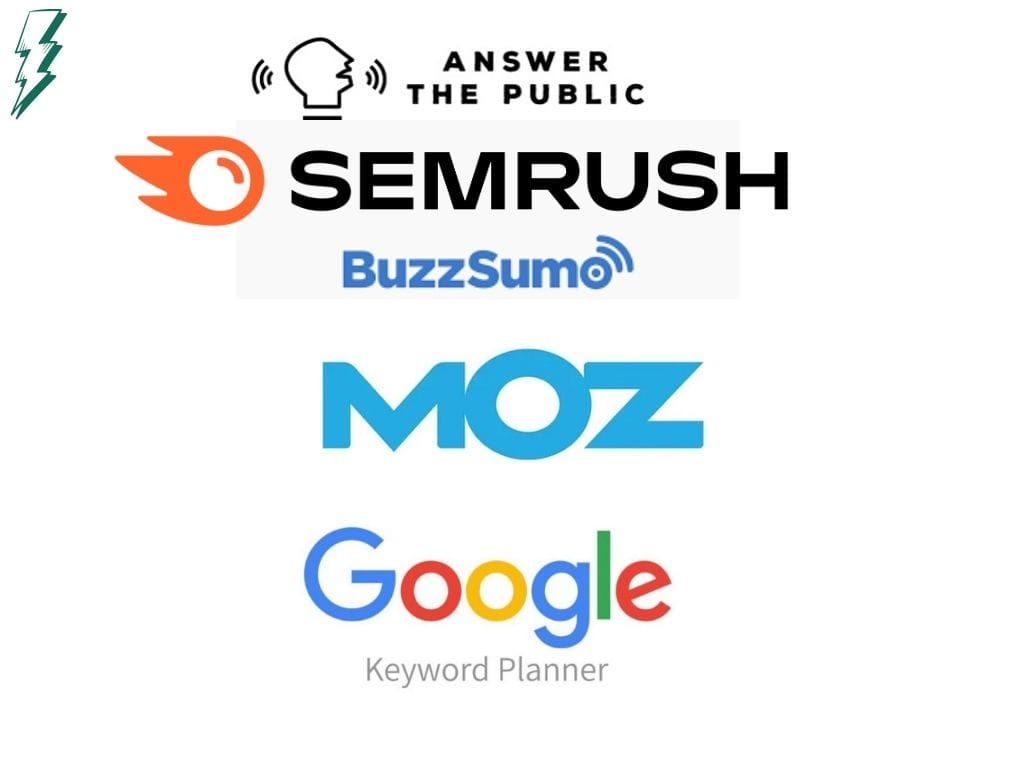
Ranking and reporting tools
- Google Search Console
- GA4
- KWFinder
- SemRush
- Page Speed Insights
Audit tools
- Ahref
- Screaming Frog
- SEOptimer
- Moz
- Seomator
keyword and content research tools
- Google Keyword Planner
- Keyword Everywhere
- Answerthepublic
- UberSuggest
- BuzzSumo
AI tools For SEO
- seoClarity
- Surfer
- Keywordranking.me
The Future of SEO: A Glimpse into the Horizon
As technology continues to evolve at an unprecedented pace, so too does the landscape of Search Engine Optimization.
While the core principles of SEO remain relatively consistent. The strategies and tactics used to achieve optimal results are constantly adapting.
The Role of AI in SEO
Artificial Intelligence (AI) is poised to revolutionize the way we approach SEO. AI-powered tools can automate tasks like keyword research, content optimization and link building. Allow Search Engine professionals to focus on more strategic initiatives.
Additionally, AI can help analyze vast amounts of data to identify emerging trends and predict future search behaviors.
The Importance of Voice Search
With the rise of voice assistants like Siri, Alexa, and Google Assistant, voice search is becoming increasingly important. Optimizing your content for voice search involves using natural language queries and focusing on long-tail keywords.
The Impact of Machine Learning
Machine learning algorithms are becoming more sophisticated. Enabling search engines to better understand the context and intent behind search queries. This means that creating high-quality, relevant content that addresses user needs will be more crucial than ever.
The Rise of Visual Search
Visual search, which involves using images to search for information, is gaining traction. Optimizing your images with alt text and structured data can help your content appear in visual search results.
The Future of Local SEO
Local Search Engine Optimization will continue to be a significant factor for businesses targeting a specific geographic area. As more people use mobile devices to search for local businesses, it’s essential to optimize your Google My Business listing and other local directories.
FAQs
What Is Mobile SEO?
Mobile Optimization involve optimizing your website to ensure that your site looks great and functions properly on mobile devices. When you perform mobile SEO, you’ll provide a positive site experience to users since it looks great on any device, regardless of the screen size.
What Is SEM?
Search engine marketing (SEM) encompasses both SEO and PPC, utilizing a combination of organic and paid strategies to increase search engine visibility. It leverages Search Engine Optimization techniques to improve organic rankings. While utilizing PPC advertising to secure immediate top-of-page placements.
How long does it take to see results from SEO?
The time it takes to see results from SEO can vary depending on several factors. Including the competitiveness of your industry, the quality of your website, and the strength of your Search Engine Optimization strategy.
Generally, it can take several months to see significant improvements in organic traffic and search engine rankings.
What are the main types of Search Engine Optimization?
There are three main types
- On-Page : Optimizing individual web pages to improve their ranking.
- Off-Page : Building backlinks and improving your website’s online reputation.
- Technical SEO: Optimizing the technical aspects of your website, such as website speed, mobile-friendliness, and site structure.
What is the importance of keyword research in SEO?
Keyword research is essential for understanding what people are searching for online. By identifying relevant keywords, you can optimize your content to attract organic traffic.
Is it important to use meta descriptions and title tags?
Yes, title tags and meta descriptions are important for both user experience and Search Engine Optimization. They help search engines understand the content of your page and can influence click-through rates.
Can I do SEO myself?
Yes, you can do optimization for search engines by yourself. However, it requires time, effort, and expertise. If you’re not comfortable with technical aspects, you may want to consider hiring an SEO professional.
Ready to unleash the power of search engine optimization for your website? Start by implementing the basics outlined in this guide. Remember, Search Engine Optimization is a long-term strategy, so be patient and consistent in your efforts.
